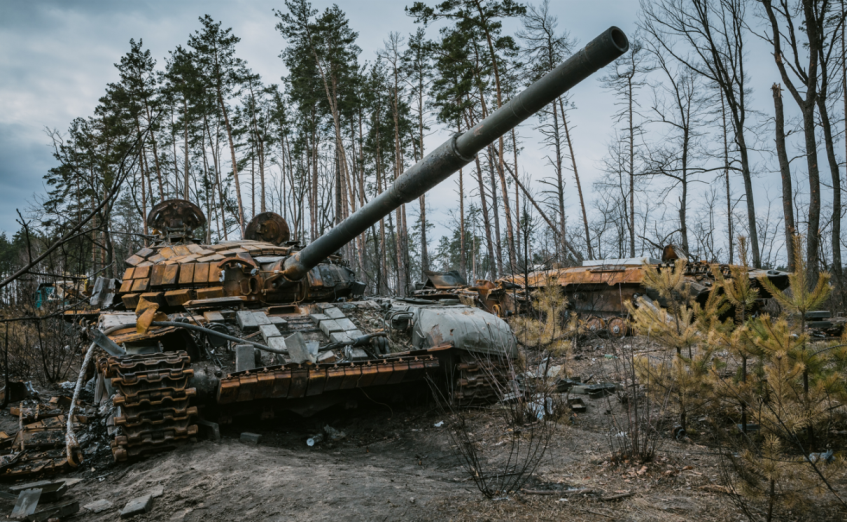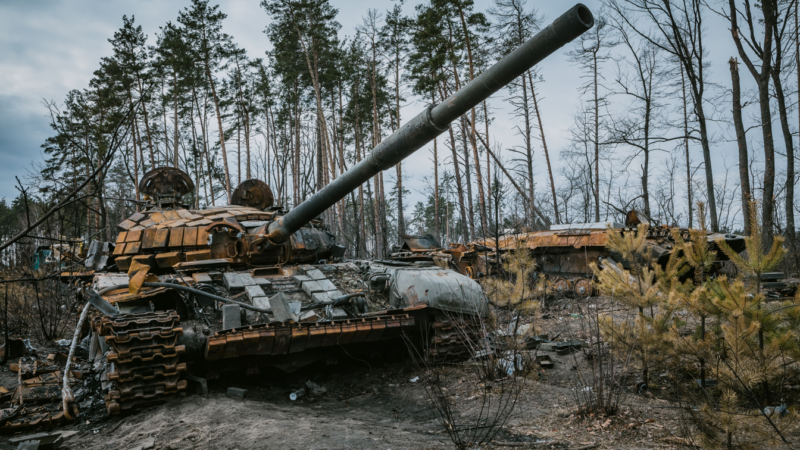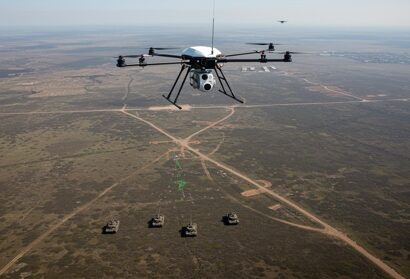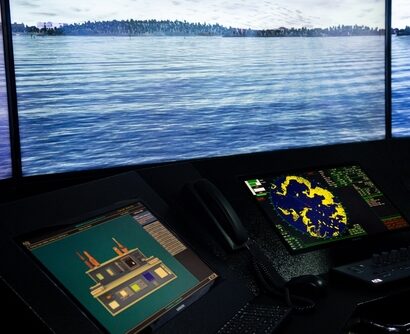Abstract: Using the initial ideas of Terry Jones of Monty Python and U.S. historian Marilyn B. Young, this paper challenges the use of the abstract in security problems and debates. As Jones states, can you fight and win against an abstract noun? In his case, it was the then-ongoing War on Terror. Jones expands on this idea further, stating that such abstraction has the potential to lead to ‘forever wars’ as, in this case, terrorism can never be defeated. The re-establishment of direct language based on the greater use of proper nouns exemplifies clarity. Precision in language is not a panacea to strategic issues, but it is the only way to start.
Problem statement: How does abstraction in public language impact clarity and accountability in security situations?
So what?: Clarity and accountability will improve by avoiding the abstract in security language. As Winston Churchill put it, ‘precision in language leads to precision in execution.’ The world is becoming far too dangerous a place for anything else. It is important to, therefore, look at two aspects of this: first, in terms of strategy to end the era of strategic innocence and greater focus on the context of a specific conflict, and second, to learn more from the language of strategic failure of the last twenty or so years.

Source: shutterstock.com/kibri ho
Uncertainty Rather Than Security
‘New Leviathans are fostering uncertainty rather than creating security.’ – Andy Owens.[1]
George Orwell clearly defined the relationship of language with power in his landmark novel 1984.[2] In his case, the restriction of meaning and the acceptance of absolute falsehoods led to uncritical compliance. Media control of the type in ‘Orwell’s Oceania’ is more difficult in present-day society due to the decentralised distribution provided by the internet. However, this does not dissipate the power of language in skewing and undermining security issues. The present-day threat is not language restriction but rather the use of the ‘abstract’ in the security language. The late Terry Jones masterfully articulated this problem. Terry Jones asks us: can you fight and win against an abstract noun?
Media control is more difficult in present-day society due to the decentralised distribution provided by the internet. However, this does not dissipate the power of language in skewing and undermining security issues.
In Jones’ case, his focus was the then-ongoing War on Terror. He asked, how does one know when either side has won? When does ‘terror’ surrender? One could ask the same question about the War on Drugs,[3] the War on Cancer (the medical equivalent of Vietnam[4]) or even the War on Want.[5] This paper will not deal with the militarisation of social issues but rather the damage such abstraction does to strategy. The paper will ask if abstract expression is another gateway to Marilyn B. Young’s ‘forever wars’ and other malaise.[6] She, along with Terry Jones, was not alone in such concerns.[7]
Although Jones concedes that a war was fought against fascism, he urges readers to note that this threat was embodied by Nazi Germany, with the clear outcome of unconditional surrender. Fascism itself has not been defeated. Abstract nouns have a horrible habit of having a rather long existence. Never will they change; never will they be defeated. Perhaps equally insidiously, they are malleable to all manner of ‘threats’ that assist in lobbying additional funding for a security agency (missile gaps being just one example).[8] The War on Terror was used cynically to push a neo-conservative agenda into the Middle East through the invasion of Iraq to seek non-existent weapons of mass destruction[9] (another vague phrase). ‘Nation building’ is another such vague term, and incidentally, it is something military organisations are neither organised for nor, as recent evidence would indicate, particularly good at.[10]
War, Special Military Operation, Hybrid War – What is it?
Public security dialogue seems to be unable to break this addiction to abstraction. There are now two belligerent major powers flexing military force actively and passively, namely, Russia and China. Russia is conducting a ‘special military operation’ in Ukraine, and China is an expert practitioner in ‘grey zone’ conflict or ‘hybrid war’. In fact, Russia has started a specific national and cultural annihilation war through a military invasion. Meanwhile, China seeks to expand its political and financial status through (for now) age-old practices of subterfuge and intimidation[11] short of bloody violence.[12] In contrast, Ukrainian President Volodymyr Zelensky, bearing the brunt of invasion, has been rather concrete in his demands;[13] fighting for survival tends to have this effect.
Aside from horribly muddying security debate with pages and pages of semantics and shifting definitions, abstraction in conflict has another security issue. That of allowing defence departments to over-blow threats. This is perhaps not so much of a risk in present-day Europe, particularly the Baltic states, which carry deep historical scars. However, in the corridor of the U.S. government, the need to hype a particular threat based on data that later proves to be erroneous has occurred numerous times.[14] Five hundred (or 600[15]) ship navies and wars on two fronts constantly reappear.[16] There is no mention of how and what for, just a declaration of some gap or possible scenario, never accurately quantified or given a rigorous assessment of likelihood.[17]
In the corridor of the U.S. government, the need to hype a particular threat based on data that later proves to be erroneous has occurred numerous times. Five hundred (or 600) ship navies and wars on two fronts constantly reappear.
Jones was likewise profoundly concerned about the open nature of the wars on abstract nouns, as was the distinguished scholar Mary B. Phillips. Her concerns extended into other abstractions, such as Dean Acheson’s formation of the ‘great crescent’ to justify the ‘police action’ in Korea in the 1950s. There is now a similar geographically bizarre abstraction in the form of the European’ Indo-Pacific tilt,’ which seems to go only so far as a vague lean by sending small detachments far from home for a few months or not at all.[18] Strategic abstractions are somewhat fragile in their encounter with maps, especially when Europe’s geographic backyard is ablaze.
In a similar vein down under, further compounding a particular Australian addiction to the abstract, the nation’s defence force is now apparently into ‘impactful projection,’ with an appropriately loose technical definition[19] — the abstract technical ‘silver bullet’ to conflict resolution more dangerous to the author than the enemy.
Highlighting such dangers, Young raises another concern about the abstraction of the ‘War against Terror’; in her case, how to eliminate a tactic? Jones, likewise, also questions this along the lines of inconsistent responses to tactics. He asks why, after the horrendous bombing of Hyde and Regent’s Park in 1982, the UK did not seek to attack the primary source of funds for the IRA (the U.S.) or the training areas in Ireland. This idea was, of course, a mental exercise in the absurd. Still, it is important to show how the abstract could lead to unaccountable military freewheeling, contradictions, and hypocrisy. To dismiss this with the wave of a hand and say, ‘Well, whatever means necessary!’ is the road to perdition — one of body counts and forever wars.[20]
Proxy has become another abstraction connected to war, struggling for a precise definition and being used at times in the same inflammatory fashion as terrorism.[21] Alliances may lend too much accountability for major powers. The recent abandonment of Afghan people resisting the Taliban, and the Kurds fighting the Syrian Army and ISIS (note the proper nouns), would indicate that Western nations are inferior practitioners of proxy warfare.
So What?
So, what to do? For instance, in the case of the Russia-Ukraine War in particular, instead of repeating the phrase ‘special military operation’, a more accurate statement is: ‘Russia is at war with Ukraine. So far, its stated aim is the elimination of self-determination for Ukrainians and re-absorption of the land and people back into itself; Russia has offered no other credible option for resolution and continuously attempts to deter support by the hollow threat of nuclear weapon release.’ Such a relatively concrete definition/overview of the security situation is likely to make strategizing for a solution much easier. The same effect would occur in addressing security concerns related to China, a similarly concrete assessment could be as follows: ‘China’s belligerence through aggressive precursor drug production,[22] diplomatic coercion,[23] resource control[24] and creeping territorial expansion[25] under a deeply autocratic leader requires restraint.’
Precise language itself does not prevent conflict either. But one can hope that the examples above help reveal the benefit of avoiding abstraction and generalisation. Defining security threats or challenges concretely at least helps in gaining initial clarity, which is critical in security planning and would genuinely assist public debate. Moreover, it prevents us from casually using the most serious of words — War.
Precise language itself does not prevent conflict either. But one can hope that the examples above help reveal the benefit of avoiding abstraction and generalisation.
Mary Ticktin looks at the political and sociological impact that the use of ‘innocence’ brings in turning the concrete into indefinite, marginalising and over-simplifying the ‘innocent’ group or person being considered.[26] Removing context, abstract language allows in strategy also this disempowerment to occur. It is, therefore, necessary to end this long period era of accepting strategic innocence in security discourse.
The innocence must end both in terms of no longer accepting vague language in security policy and, as importantly, acknowledging, as Colin Gray has put it, “there are always thugs, villains, rogues, and fools out there as well as some in here, who mean us harm.”[27] Importantly, understanding that, as he further says, “the contexts of war are all important'” Gray goes on to define seven contexts, namely, political, social-cultural, technological, military-strategic, geopolitical and geostrategic, and historical.[28] Phrasing such as ‘grey zone’, ‘missile gap’, ‘wars on’, or ‘unnamed proxies,’ deny context, and, worse, allow Gray’s internal fools to hide their true intent.
The use of the abstract in security dialogue has fuelled two major wars, where, in the case of the Iraq invasion, the primary strategic beneficiary was the prime U.S. regional opponent, Iran;[29] and the War in Afghanistan failed not only in destroying Al Qaeda and Osama Bin Laden but also in return the deposed regime.[30] Indeed, the language of the Afghanistan conflict was one of obfuscation and falsehoods.[31] Some who knew better continued as ‘expert’ sideline commentators on the Russian-Ukrainian War.[32] So, the second step is to look back harder and analyse how those wars’ language masked abject failure. As Marilyn B. Young, Neil Sheehan, and Hannah Arendt did so well in writing about the Vietnam War.[33] Looking into the future, beyond the modern rephrasing (abstraction) of ‘traditional’ threats, the prior treatment of climate change by some as an abstract issue has now led to at least two lost decades of mitigating effort — something we will now pay dearly for. Again, something that should be scrutinised now, not ex post facto.
Similarly, as Andy Owens has stated in his fine book review of John Gray’s recent work, the ship of state, or at least many that steer it, feeds on this ambiguity. Colin Gray was primarily a strategist of the state-based conflict. Still, he was prescient in identifying this risk of internal self-deception. The presumption that Western democratic systems are somehow immune to Orwellian deception is misplaced; it has just arrived in a different form — a surplus of vague phrases rather than a constriction of language. Many leaders seem to have woken up to this fact as a clear danger has presented itself. But not all leaders. Therefore, there is a need to determine how this occurred and to avoid repetition. Crucially, the benefits of the discipline of expression require rediscovery; “Precision in language leads to precision in execution.”[34]
The presumption that Western democratic systems are somehow immune to Orwellian deception is misplaced; it has just arrived in a different form — a surplus of vague phrases rather than a constriction of language.
Clarity with aforethought does not mean the answers will not be messy, untidy, and imperfect; that is the nature of conflict, but correct orientation is vital.[35] In the case of strategy, abstraction is as powerful a threat as the enemy itself. The world is now too dangerous a place for the waste and misdirection abstraction engenders.
‘”If language is not correct, then what is said is not what is meant; if what is said is not what is meant, then what must be done remains undone” – Confucius[36]
Jason Thomas is a retired Australian Armoured Corps Officer who served in various command and staff appointments, including capability development and future warfare positions. He holds a Bachelor of Mechanical Engineering, a Master of Science in military vehicle technology, and a Master of Arts in strategy and policy. Currently, he is living in Copenhagen, where, besides reading for a PhD in Mission Command at the University of Sydney and being a house dad, he occasionally writes on military topics focusing on leadership and strategy. TDHJ, and The Wavell Room, have posted his articles. The views contained in this article are the author’s alone.
[1] Andy Owen, “Liberalism’s Obituarist John Gray Extends His Dark Critique of the Modern World,” The Critic (blog), August 04, 2023, https://thecritic.co.uk/liberalisms-obituarist/.
[2] George Orwell, 1984, Nineteen Eighty-Four (New York: New American Library, 1950).
[3] The Economist, “Ending the War on Nouns,” The Economist (Online), 2009.
[4] Young-Joon Surh, “The 50-Year War on Cancer Revisited: Should We Continue to Fight the Enemy Within?,” Journal of Cancer Prevention 26, no. 4 (December 2021): 219–23, https://doi.org/10.15430/JCP.2021.26.4.219.
[5] “The War on Want,” Nature (London) 449, no. 7165 (2007): 947–947, https://doi.org/10.1038/449947a.
[6] Mark Phillip Bradley and Mary L. Dudziak, Making the Forever War, Marilyn B. Young on the Culture and Politics of American Militarism, Culture and Politics in the Cold War and Beyond (University of Massachusetts Press, 2021).
[7] Terry Jones, “Why Grammar Is the First Casualty of War,” Newspaper, The Telegraph, 2001, https://www.telegraph.co.uk/news/uknews/1364012/Why-grammar-is-the-first-casualty-of-war.html; Steven Poole, “Are There Really Little Grey Men Sitting in Secret Offices, Deciding on the Precise Language They Will Use to Bamboozle the Public?,” New Statesman (1996) 135, no. 4780 (2006): 34; Giuseppina Scotto di Carlo, “Weasel Words” in Legal and Diplomatic Discourse: Vague Nouns and Phrases in UN Resolutions Relating to the Second Gulf War,” International Journal for the Semiotics of Law = Revue Internationale de Sémiotique Juridique 28, no. 3 (2015): 559–76, https://doi.org/10.1007/s11196-015-9406-0.
[8] Christopher A. Preble, “Who Ever Believed in the ‘Missile Gap’?: John F. Kennedy and the Politics of National Security,”: Presidential Studies Quarterly 33, no. 4 (2003): 801–26, https://doi.org/10.1046/j.0360-4918.2003.00085.x.
[9] Eric Herring and Piers Robinson, “Report X Marks the Spot: The British Government’s Deceptive Dossier on Iraq and WMD,” Political Science Quarterly 129, no. 4 (2014): 551–84, https://doi.org/10.1002/polq.12252.
[10] Bradley and Dudziak, Making the Forever War, Marilyn B. Young on the Culture and Politics of American Militarism.
[11] Chongyi Feng, “What’s behind China’s Bullying of Australia?,” ABC News (blog), December 02, 2020, https://www.abc.net.au/news/2020-12-03/whats-behind-chinas-bullying-of-australia-soft-target/12943486.
[12] John Pollock and Damien Symon, “Are China and India Bound for Another Deadly Border Clash?,” Chatham House (blog), June 02, 2023, https://www.chathamhouse.org/publications/the-world-today/2023-06/are-china-and-india-bound-another-deadly-border-clash.
[13] “Top Ukraine Aide Says Zelensky’s “peace Plan” Backed by Allies,” BBC Monitoring Former Soviet Union, 2022.
[14] Mark Phythian, “Intelligence Failure as a Mutually Reinforcing Politico-Intelligence Dynamic: The Chilcot Report and the Nature of the Iraq WMD Intelligence Failure,” British Yearbook of International Law 87, no. 1 (2017): 196–215, https://doi.org/10.1093/bybil/bry017.
[15] Gregory L Vistica, Fall from Glory: The Men Who Sank the U.S. Navy, First Touchstone edition, updated for the paperback edition. (New York, NY: Simon & Schuster, 1997).
[16] Markus Garlauskas, “The United States and Its Allies Must Be Ready to Deter a Two-Front War and Nuclear Attacks in East Asia,” The Atlantic Council (blog), August 16, 2023, https://www.atlanticcouncil.org/in-depth-research-reports/report/the-united-states-and-its-allies-must-be-ready-to-deter-a-two-front-war-and-nuclear-attacks-in-east-asia/.
[17] Preble, “Who Ever Believed in the ‘Missile Gap’?: John F. Kennedy and the Politics of National Security.”
[18] Geir Moulson, “German Foreign Minister Scraps Pacific Trip after a Persistent Problem with Her Plane,” AP News, August 15, 2023, https://apnews.com/article/germany-foreign-minister-plane-australia-trip-abandoned-2db1c003c15304e68bd73abb8e60c74e.
[19] Department of Defence, “National Defence: Defence Strategic Review 2023” (Australian Government, April 24, 2023), https://www.defence.gov.au/about/reviews-inquiries/defence-strategic-review.
[20] Bradley and Dudziak, Making the Forever War, Marilyn B. Young on the Culture and Politics of American Militarism.
[21] Vladimir Rauta, “Proxy War – A Reconceptualisation,” Civil Wars 23, no. 1 (2021): 1–24, https://doi.org/10.1080/13698249.2021.1860578.
[22] Vanda Felbab-Brown, “China’s Role in the Fetanyl Crisis,” Brookings Institute (blog), March 31, 2023, https://www.brookings.edu/articles/chinas-role-in-the-fentanyl-crisis/.
[23] Feng, “What’s behind China’s Bullying of Australia?.”
[24] Ernest Scheyder and Eric Onstad, “Insight: World Battles to Loosen China’s Grip on Vital Rare Earths for Clean Energy Transition,” August 02, 2023, https://www.reuters.com/markets/commodities/world-battles-loosen-chinas-grip-vital-rare-earths-clean-energy-transition-2023-08-02/; “Philippines Slams China Fishing Rules as Violation of Int’l Law,” Kyodo News Service., January 10, 2014, 1552900543, ProQuest One Academic, http://ezproxy.library.usyd.edu.au/login?url=https://www.proquest.com/wire-feeds/philippines-slams-china-fishing-rules-as/docview/1552900543/se-2?accountid=14757.
[25] Pollock and Symon, “Are China and India Bound for Another Deadly Border Clash?.”
[26] Miriam Ticktin, “A World without Innocence,” American Ethnologist 44, no. 4 (2017): 577–90, https://doi.org/10.1111/amet.12558.
[27] Colin S. Gray, Fighting Talk: Forty Maxims on War, Peace and Strategy (Praeger Publishers, 2007).
[28] Idem.
[29] Todd South, “Army’s Long-Awaited Iraq War Study Finds Iran Was the Only Winner in a Conflict That Holds Many Lessons for Future Wars,” Army Times, January 18, 2019, https://www.armytimes.com/news/your-army/2019/01/18/armys-long-awaited-iraq-war-study-finds-iran-was-the-only-winner-in-a-conflict-that-holds-many-lessons-for-future-wars/.
[30] Hameed Hakimi and Gareth Price, “Afghanistan: One Year of Taliban Rule,” Chatham House (blog), August 15, 2022.
[31] Mark Dodd, “Tide Turing towards NATO Afghanistan, Defence Chief Angus Houston Says,” The Australian, February 10, 2010, https://www.theaustralian.com.au/news/tide-turning-towards-nato-in-afghanistan-defence-chief-angus-houston-says/news-story/05ecc0de2fbdba5d5d3951e04d6414a3; Craig Whitlock, “The Afghanistan Papers,” The Washington Post, December 09, 2019, https://www.washingtonpost.com/graphics/2019/investigations/afghanistan-papers/afghanistan-war-confidential-documents/.
[32] David Petraeus and Fredrick W. Kagan, “Opinion Ukraine’s Counteroffensive Might yet Surprise Critics,” Newspaper, The Washington Post (blog), August 24, 2023, https://www.washingtonpost.com/opinions/2023/08/24/ukraine-counteroffensive-victory-breakout/.
[33] Hannah Arendt, “Lying in Politics: Reflections on the The Pentagon Papers,” The New York Review of Books, November 18, 1971, https://www.nybooks.com/articles/1971/11/18/lying-in-politics-reflections-on-the-pentagon-pape/; Bradley and Dudziak, Making the Forever War, Marilyn B. Young on the Culture and Politics of American Militarism; Neil Sheehan, A Bright Shining Lie (London: Pimlico, 1998).
[34] James Galloway, “Planning in 5 Quotes,” Military Thinking, The Wavell Room (blog), September 2022, https://wavellroom.com/2022/09/28/planning-in-5-quotes/.
[35] Karl E. Weick, “Reflections on Enacted Sensemaking in the Bhopal Disaster,” Journal of Management Studies 47, no. 3 (May 01, 2010): 537–50, https://doi.org/10.1111/j.1467-6486.2010.00900.x.
[36] James Galloway, “Planning in 5 Quotes,” Military Thinking, The Wavell Room (blog), September 2022, https://wavellroom.com/2022/09/28/planning-in-5-quotes/.






